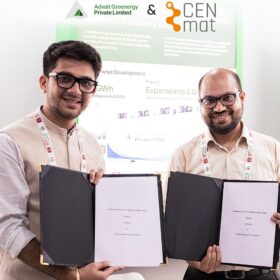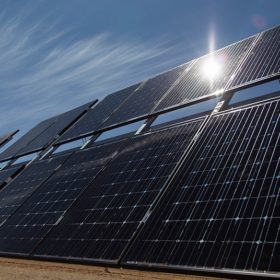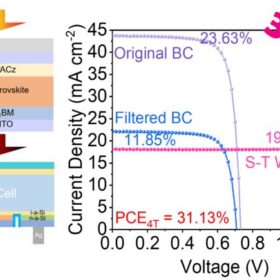Advait Energy Transitions posts consolidated revenue of INR 486.33 crore for 9MFY26
Advait Energy Transitions Ltd has reported strong financial performance for the third quarter and first nine months of FY26, driven by execution momentum across its power transmission solutions and new & renewable energy businesses.
Advait Greenergy signs MoUs for green hydrogen technology, storage, and EPC
Advait Greenergy has partnered with electrolyser technology providers Switzerland-based CENMAT and US-based Power to Hydrogen Inc. (P2H2), India-based EPC firm JESCO Projects, and hydrogen storage specialist VJ Industries to support the development of green hydrogen projects in India.
The Hydrogen Stream: NTPC Green signs MoU with Assago Industries for green ammonia supply
NTPC Green Energy Ltd (NGEL) has signed a Memorandum of Understanding (MoU) with Assago Industries for the supply of green ammonia, CO₂, renewable power, and other utilities to support the production of 1,000 tonnes per day (tpd) of green urea.
Why transformers are the unsung heroes of India’s green revolution
We are preparing for a future where transformers are dynamic energy hubs, stabilizing a grid that is constantly fluctuating between charging EVs and absorbing solar export.
Carbon steel pipes: The backbone of India’s expanding energy and infrastructure grid
The role of carbon steel pipes in India’s energy and infrastructure grid will continue to evolve alongside the country’s development priorities. As networks expand and operating conditions become more demanding, value will be defined not by capacity alone, but by lifecycle performance, reliability, and sustainability.
India curtailed 2.3 TWh of solar generation between May and Dec. 2025: Ember
The system operator regularly had to curtail solar generation as an emergency measure to maintain grid security, as other resources were already flexing to their maximum capabilities. Lost solar generation highlights the need for flexibility to grow at pace with solar capacity.
Pre-Budget 2026: Solar and storage industry calls for tax reforms, PLI expansion, and circular economy push
Ahead of the presentation of the Union Budget 2026–27, stakeholders across India’s solar and energy storage ecosystem have urged the government to focus on tax reforms, expansion of production-linked incentive (PLI) schemes with targeted allocations, faster viability gap funding (VGF) disbursements, additional funding for residential rooftop solar, improved access to long-term and affordable green finance, and a stronger push for circular economy initiatives and grid modernisation.
Building responsibly: India’s steel sector and the carbon budget challenge
India’s steel sector stands at a decisive moment. As the country pursues industrial growth, it must also demonstrate that development and decarbonisation can move together. The carbon budget framework offers not a constraint, but a compass, guiding industry toward innovation, resilience and global competitiveness.
India’s transition to green steel is expected to be gradual, driven by renewables in the near term: ICRA
ICRA expects the Indian steel industry’s decarbonization to be gradual, with near-term emission reductions driven mainly by higher adoption of renewable energy and improvements in operational efficiency, as high costs and technology constraints limit faster decarbonization.
Chinese scientists build 31.13%-efficient perovskite-silicon tandem solar cell via 2D seeding agent
Researchers in China developed a novel two dimensional (2D) seeding agent to regulate crystallization in a 1.80-eV wide-bandgap perovskite film. A perovskite-silicon tandem device made with the resulting optimized subcell achieved an efficiency of 31.13%, outperforming a control device.














